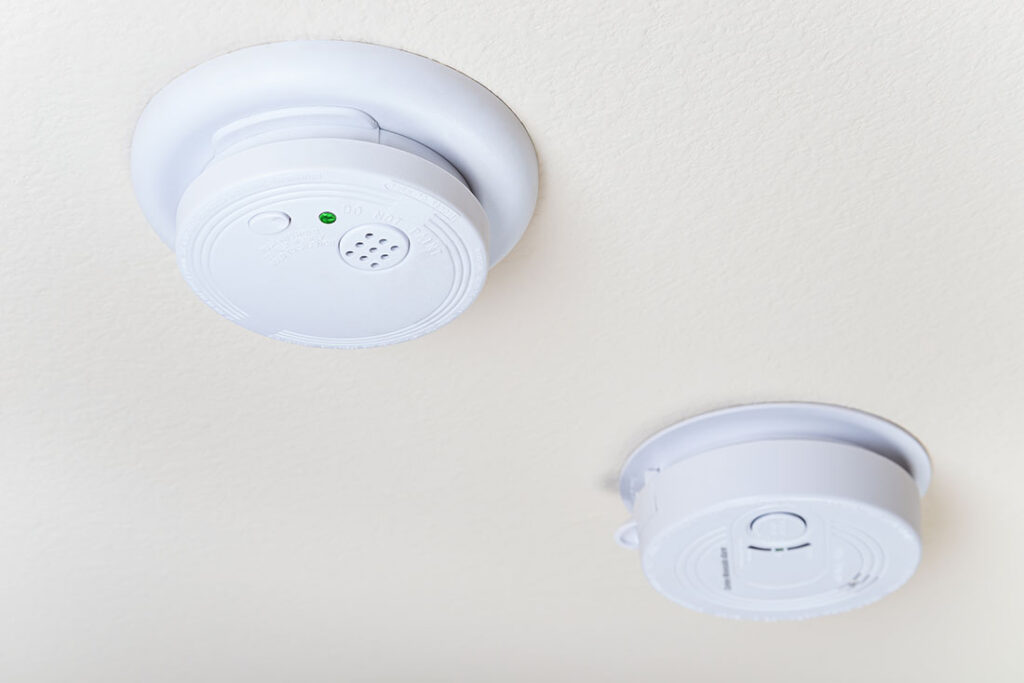Everything You Should Know About Smoke & CO Monitor Laws
Smoke and carbon monoxide alarms are a key part of an alarm company’s offerings: They’re important devices for both homes and businesses, and they can easily function as the primary focus of a system or as an important add-on to a larger security project.
However, smoke and CO monitoring is also strictly governed by state laws as a safety issue. It’s important for companies to understand the local regulations so they can 1)explain requirements to interested clientsand 2)always know the correct installation steps for these alarms. Let’s take a closer look at the ins and outs of this type of monitoring.
Smoke and CO Alarms are Usually Required (But Rules Vary)
Smoke and CO alarms are typically required in residential settings, especially single-family dwellings and other, smaller buildings. Laws can, of course, vary considerably depending on the state, but by the early 2010s all states had some form of this rule.
For commercial buildings, best practices are generally handled by the NFPA (National Fire Protection Association), and requirements can vary based on the type of commercial building. Local regulations use these guidelines to require a certain number of smoke alarms, smoke detectors, and sprinklers set up in commercial buildings, although again this can vary considerably even from city to city, so it’s important to keep current on these regulations.
Finally, states generally have strict requirements for smoke alarms and CO monitoring in public places as well – including schools, libraries, etc. Ultimately, in most cases they are required.
Smoke Alarm Regulations Can Differ from CO Alarms
This is where things get a little more complicated. While it’s common for both smoke and CO alarms to be required, regulations can differ.
Specifically, smoke alarms are generally required in all residential dwellings, no matter their type. However, CO alarm laws vary much more. Some states only require CO monitoring in single family dwellings, or one to three family dwellings. Other states greatly expand requirements and require CO detectors in all single or multi-family dwellings, rental properties, etc. (the wording of the laws can vary here). CO detector laws for commercial buildings tend to be much more lax, but some states do require commercial installations, or at least installation for certain types of commercial buildings like restaurants. These requirements can change over time, so staying away of local laws is again important. Some states are shifting over to rules that require CO alarms in all new and existing buildings.
Some States Specify Certain Types of Devices
Watch out for state laws that mention device requirements as well. Many states use the phrase “hard wired” for smoke detectors in new construction, since they don’t want to rely on batteries as much. This can require different installation approaches if your company works on new developments. Other states also restrict what kind of smoke alarms can be sold in the state – Oregon, for example, says any smoke alarm sold there has to include a 10-year battery and much offer an option to turn off the alarm temporarily.
The Location of Devices Can Also Matter
Also look at state laws to see if the location of detectors makes a difference. These may be more common as a commercial regulation, but some states also have location rules for residential dwellings, too. Illinois, for example, requires that detectors much be placed within 15 feet of sleeping areas for better safety results.
Alarm Providers May Balk at Professional Monitoring with Smoke/CO Detection
When professional monitoring is added onto detectors, things get complicated once again. Professional monitoring allows centers to check out alerts and contact local emergency services if it looks like there is a problem. However, many communities will fine people for calling out firefighters to a false alarm, and professional monitoring companies don’t want to put themselves in a position where they may be responsible for paying these fines. Other locations may have stricter monitoring rules for businesses that these companies don’t want to get involved in.
The result? They may not bother with it at all. The alarm manufacturer Ring, for example, simple states that if you have a Ring Alarm with professional monitoring at a business, Ring will not monitor for smoke or carbon dioxide, and will not be responsible for any related fines. If you are putting together a professional monitoring system for a client, it’s important to find providers that are compatible with their needs.
Final Notes
As you can see from our summary, laws differ significantly between new construction and retrofitting. Both provide valuable opportunities for alarm installation companies, whether it’s a development that needs a hard-wired smoke alarm system installed in the right locations, or a rental property that was recently affected by new laws and needs to be retrofitted with CO detectors so the landlord can continue to do business. When you know local requirements like these, you will be able to target your own products and services more effectively, while also making sure all of your products are up to code.






